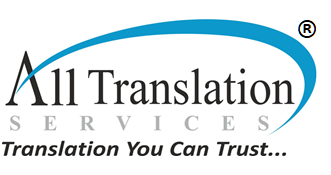Different Kinds of Medical Translation
A slight discrepancy may result in catastrophic events, affecting one’s health. Thus, the healthcare industry hires an expert to develop authenticity in their translated medical terms.
Consequently, this write-up will explain the types of medical translation and why it is essential.
Types of Medical Translation
Six types of medical translation will come across your way while you look for transcribing medical terms and concepts in your language. These are-
Healthcare Translation
The industry provides detailed information about a patient’s health via a medical translator in healthcare translation methods. The translator expert then takes the communication between the doctor and the patient. They are trained professionals who can even interpret the information with deaf and how to counter stressful situations. Therefore, it makes their presence more vital in medical treatment.
Pharmaceutical Translation
A pharmaceutical translation, often known as pharma translation, consists of transcribing instructions, labels, and directions printed on medicine boxes, prescriptions, and consent forms. This type of translation carries more importance than healthcare translation. The translated information helps the patients to take their medicines accordingly. You would have understood how important it is to get the pharma translation done. The experts interpret the medicine details for people facing language issues and protect them from various side effects. As a minor mistake in understanding the required dose, consent terms may result in harmful accidents.
Clinical Translation
Clinical translation refers to an integral part of medical translation. These are the long-life projects that take years to receive the potential outcome. It involves developing medicines, cures, and industrial information in bilingual languages. Moreover, it requires a significant documentation process, from registrations to clinic labs, ingredients, notes, and trials. Although, a clinical translator provides special attention in such a process to get the required results. A single mistake Clinical translation is another highly critical type of translation.
Admission and Discharge Translation
The admission and discharge process are essential elements of medical treatment. As emergencies can arrive anytime, it requires proper communication between the patient and healthcare providers to get the detail of the incident. For example, if the patient or his family does not understand English, then the person who helps the situation is the medical translator. A situation like this needs to be resolve immediately. Thus, the translator interprets and passes on the information between the staff, doctors, and patients. They focus on every aspect of the situation and maintain accuracy in every detail they convey.
Patient Booklet and Webpages
Like prescription, consent forms in the database related to a patient’s health also require access in multiple languages. Therefore, translating the healthcare information on websites and distributing booklets can help the patients learn about every aspect of their treatment in their language. In addition, it improves convenient comprehension and increases the patient’s trust in the healthcare industry.
Patent Translation
The demand for drugs and medicines is higher all over the globe. Although, the supply of such medicines applies patent, which also needs translation. An individual reading the patent detail may face difficulty in the medical information. Thus, the healthcare industry provides multi-lingual information of patents for various regions.
Bottomline
Medical translation is a necessary term and thus requires experience and specialized skills to interpret accurate information with doctors and patients. Therefore, many translations association say Canada provides training for transcribing the medical terms without any discrepancy. It includes pharmaceuticals, healthcare, admission, discharge, clinical, and other translation details. Therefore, it helps both them, i.e., patients and doctors communicate effectively irrespective of the language barrier.
